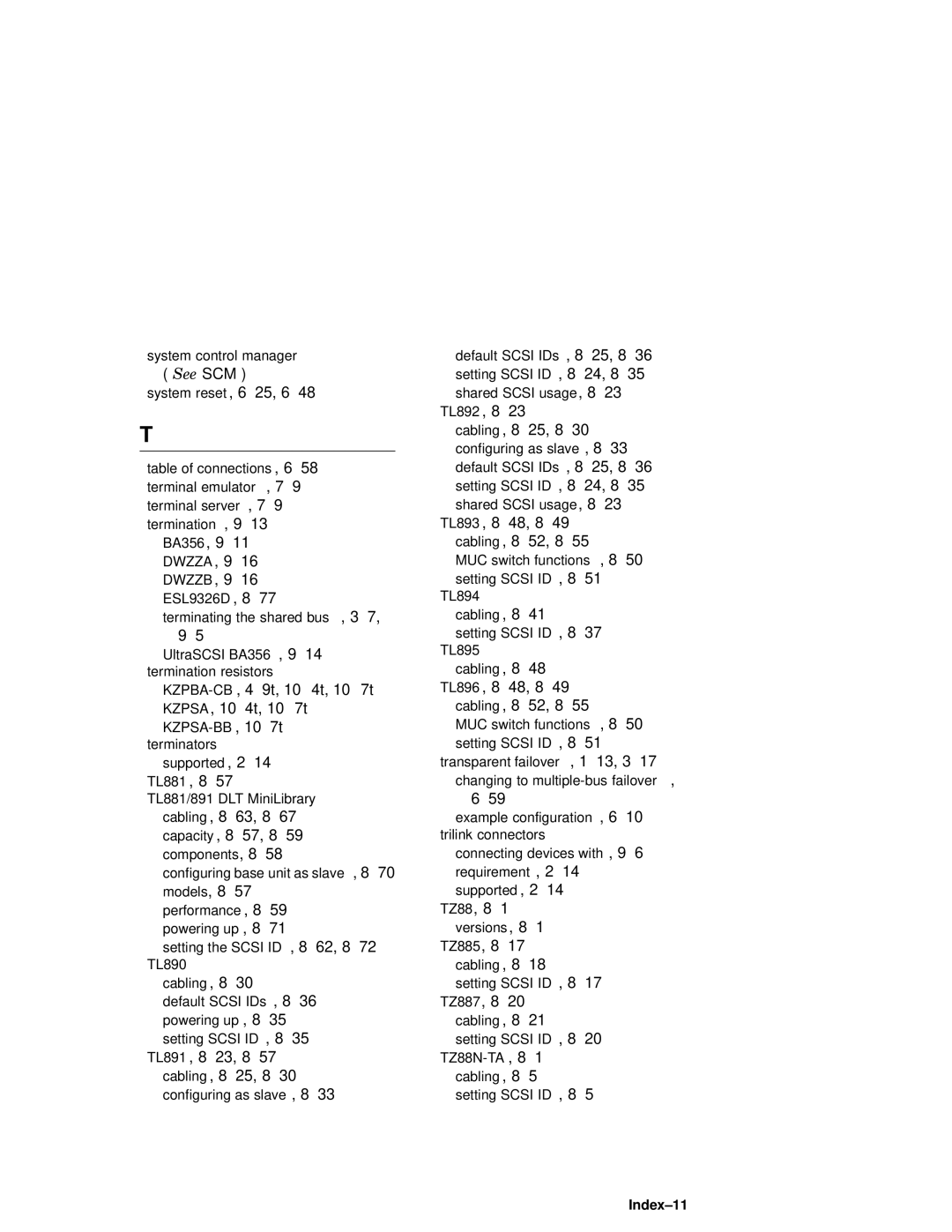system control manager
( See SCM )
system reset, 6–25,6–48
T
table of connections, 6–58terminal emulator, 7–9terminal server, 7–9termination, 9–13
BA356, 9–11
DWZZA, 9–16
DWZZB, 9–16 ESL9326D, 8–77 terminating the shared bus, 3–7,
9–5
UltraSCSI BA356, 9–14termination resistors
KZPBA-CB, 4–9t, 10–4t, 10–7t
KZPSA, 10–4t, 10–7t
KZPSA-BB,10–7t
terminators supported, 2–14
TL881, 8–57
TL881/891 DLT MiniLibrary cabling, 8–63,8–67capacity, 8–57,8–59components, 8–58
configuring base unit as slave, 8–70models, 8–57
performance, 8–59powering up, 8–71
setting the SCSI ID, 8–62,8–72TL890
cabling, 8–30
default SCSI IDs, 8–36powering up, 8–35setting SCSI ID, 8–35
TL891, 8–23, 8–57 cabling, 8–25, 8–30 configuring as slave, 8–33
default SCSI IDs, 8–25,8–36setting SCSI ID, 8–24,8–35shared SCSI usage, 8–23
TL892, 8–23 cabling, 8–25, 8–30 configuring as slave, 8–33 default SCSI IDs, 8–25, 8–36 setting SCSI ID, 8–24, 8–35 shared SCSI usage, 8–23
TL893, 8–48, 8–49 cabling, 8–52, 8–55
MUC switch functions, 8–50setting SCSI ID, 8–51
TL894 cabling, 8–41
setting SCSI ID, 8–37TL895
cabling, 8–48TL896, 8–48,8–49
cabling, 8–52, 8–55
MUC switch functions, 8–50setting SCSI ID, 8–51
transparent failover, 1–13,3–17changing to multiple-bus failover,
6–59
example configuration, 6–10trilink connectors
connecting devices with, 9–6requirement, 2–14supported, 2–14
TZ88, 8–1 versions, 8–1
TZ885, 8–17 cabling, 8–18 setting SCSI ID, 8–17
TZ887, 8–20 cabling, 8–21 setting SCSI ID, 8–20
TZ88N-TA,8–1cabling, 8–5setting SCSI ID, 8–5
